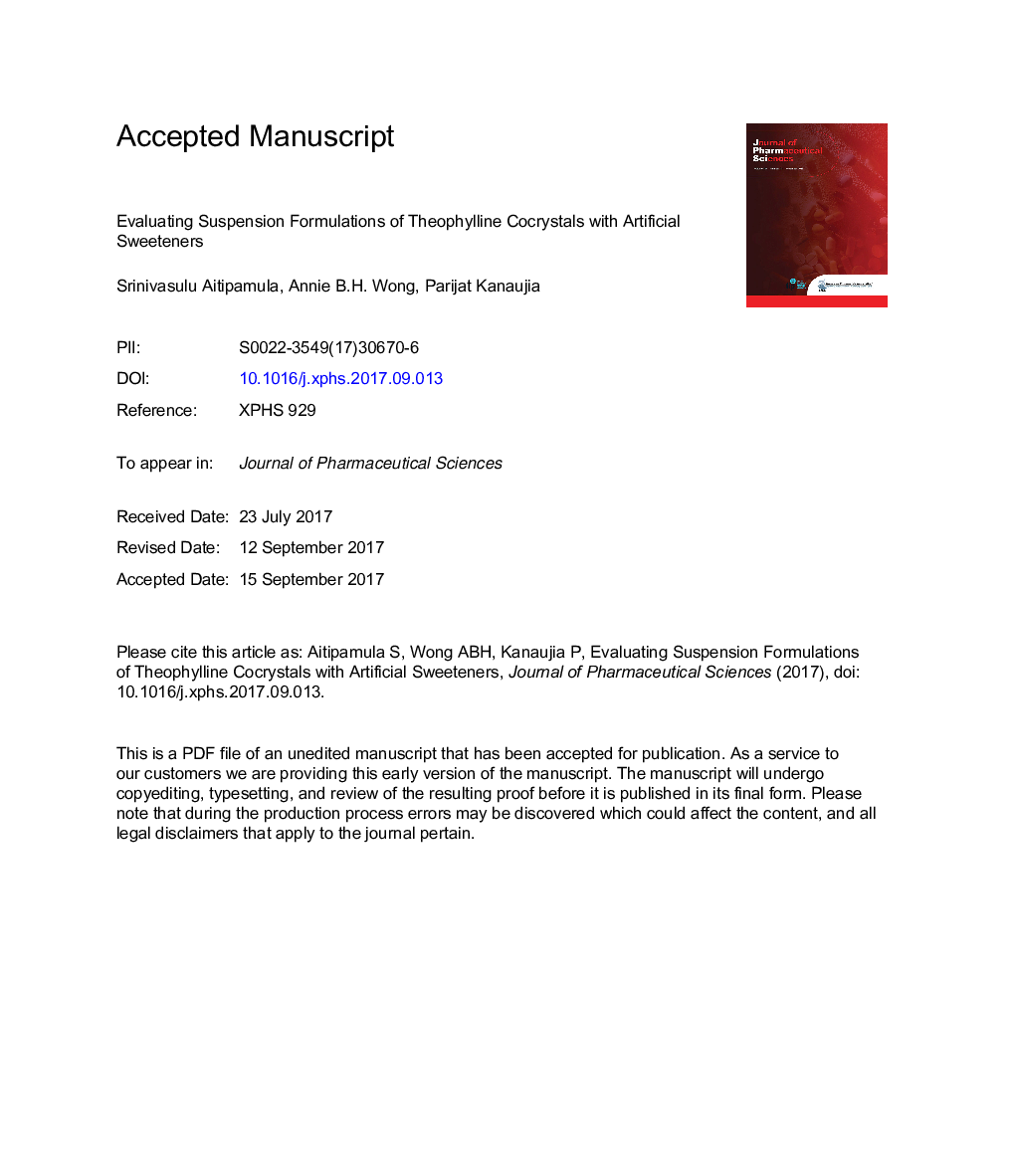| Article ID | Journal | Published Year | Pages | File Type |
|---|---|---|---|---|
| 8513464 | Journal of Pharmaceutical Sciences | 2018 | 30 Pages |
Abstract
Pharmaceutical cocrystals have garnered significant interest as potential solids to address issues associated with formulation development of drug substances. However, studies concerning the understanding of formulation behavior of cocrystals are still at the nascent stage. We present results of our attempts to evaluate suspension formulations of cocrystals of an antiasthmatic drug, theophylline, with 2 artificial sweeteners. Stability, solubility, drug release, and taste of the suspension formulations were evaluated. Suspension that contained cocrystal with acesulfame showed higher drug release rate, while a cocrystal with saccharin showed a significant reduction in drug release rate. The cocrystal with saccharin was found stable in suspension for over 9 weeks at accelerated test condition; in contrast, the cocrystal with acesulfame was found unstable. Taste analysis using an electronic taste-sensing system revealed improved sweetness of the suspension formulations with cocrystals. Theophylline has a narrow therapeutic index with a short half-life which necessitates frequent dosing. This adversely impacts patient compliance and enhances risk of gastrointestinal and cardiovascular adverse effects. The greater thermodynamic stability, sweetness, and sustained drug release of the suspension formulation of theophylline-saccharin could offer an alternative solution to the short half-life of theophylline and make it a promising formulation for treating asthmatic pediatric and geriatric patients.
Keywords
Related Topics
Health Sciences
Pharmacology, Toxicology and Pharmaceutical Science
Drug Discovery
Authors
Srinivasulu Aitipamula, Annie B.H. Wong, Parijat Kanaujia,
